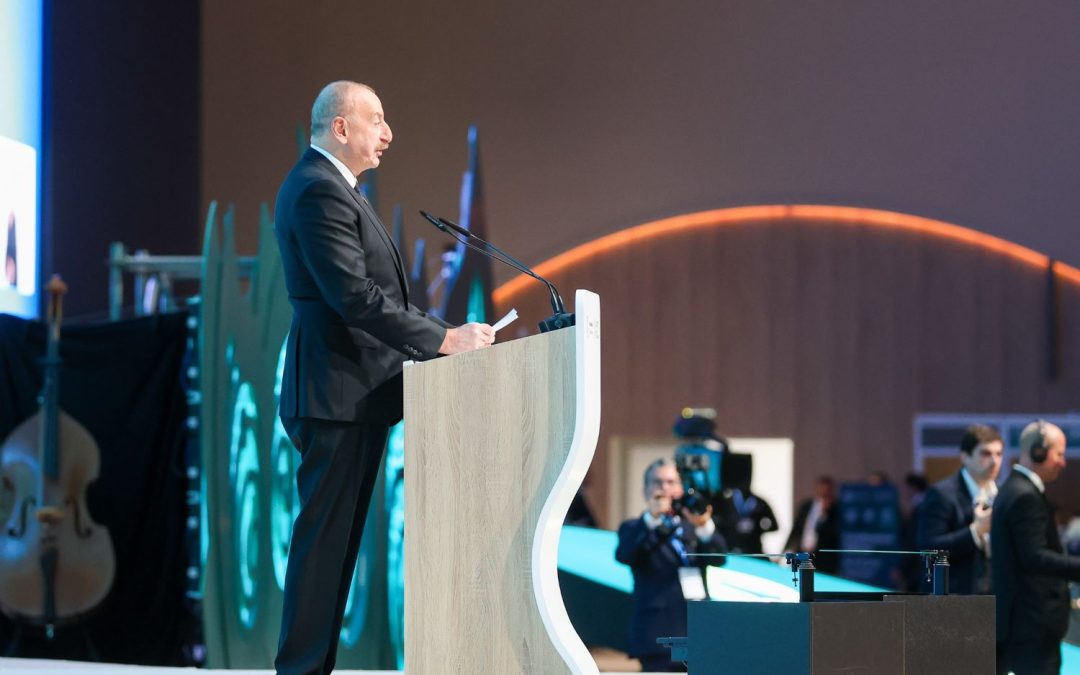Written by Orestis Aslanidis, PhD student with SCENARIO DTP, University of Reading, UK.
In the last few days, there has been a lot of criticism on Azerbaijan with media titles like “Odour of oil hang heavy over Cop29 in Baku” and the “exposing” of the negotiations of the new COP29 chief executive officer, over new oil and gas deals shortly before the start of COP29. In response, the president of Azerbaijan, Ilham Aliyev, spent some time in day 2 of negotiations publicly defending Azerbaijan’s policies.
There is no doubt that Azerbaijan’s economy heavily relies on gas and oil, with it being the 21st largest gas producer and 24th largest oil producer globally in 2023 (1, 2). At the same time, Azerbaijan has invested very little in renewable energy, with renewable energy supplying only 1.5% of its total energy supply in 2022, a figure much lower than most countries in the world (3). Although fossil fuels will inevitably keep being essential for most communities in the near future, it is vital to prevent their use from hindering the green transition, which seems to be the case in Azerbaijan.
However, it is questionable whether Azerbaijan should be the one receiving all the responsibility of the amount of oil and gas that it produces. As correctly stated by Mr. Aliyev, the vast majority of its oil and gas is exported to the EU while the EU has pushed for a deal with Azerbaijan to double its gas exports by 2027 (4, 5). It thus becomes a more philosophical question on whether the responsibility of the gas use falls with the producer or the consumer, and whether the criticism for Azerbaijan should also be shared amongst the countries that use its gas and oil.
The fact that COP29 is held in Baku has led to Azerbaijan being in the spotlight of criticism. On the one hand, this can lead to motivation for a faster green transition. On the other hand, this can hamper the sense of unity, especially when the criticism does not take a more holistic view of the problem and all the global drivers involved in it.
Climate change is a global issue. We thus have to stay as united as possible to tackle it and avoid being quick to put the blame on specific countries, without first taking a more nuanced view of the issue. Nonetheless, in this case, it appears as if Azerbaijan is truly over reliant on fossil fuels and has not spent enough effort investing in green energy, even though its prospects to produce solar, wind, hydropower and geothermal energy are quite high (3). Mr. Aliyev mentioned in his speech that there are plans to scale up renewable energy production, showing a potential positive impact of having a fossil fuel reliant state as the host of COP.
Sources:
1) US Energy Information Administration. Petroleum and other liquids. http://bit.ly/3O4uK1f
2) US Energy Information Administration. Natural Gas. https://bit.ly/3YPmgQq
3) IEA. Azerbaijan Energy Profile. https://www.iea.org/reports/azerbaijan-energy-profile/overview
4) Euro News. https://www.euronews.com/my-europe/2022/07/18/von-der-leyen-heads-to-azerbaijan-to-secure-new-gas-import-deal
5) OEC. Petroleum Gas in Azerbaijan. https://oec.world/en/profile/bilateral-product/petroleum-gas/reporter/aze


